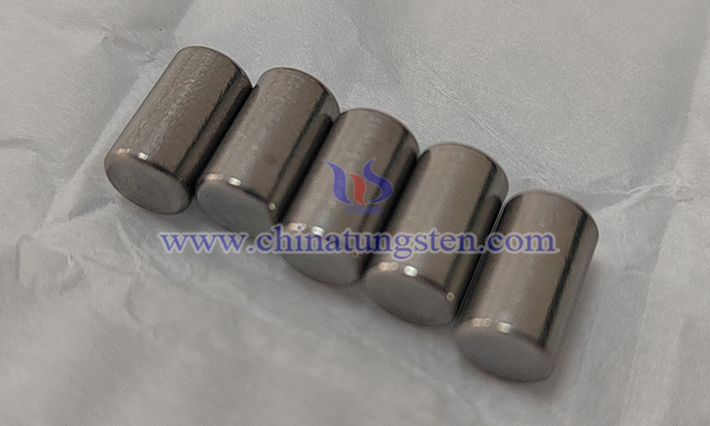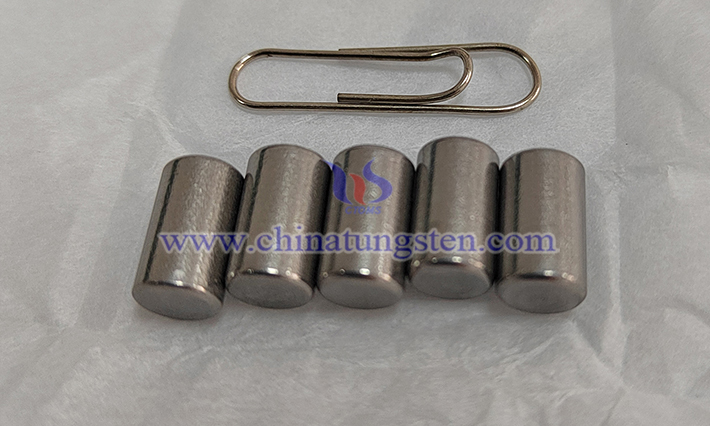Factors Affecting the Thermal Expansion Coefficient of Barium Tungsten Electrode
- Details
- Category: Tungsten Information
- Published on Tuesday, 27 May 2025 17:42
The thermal expansion coefficient of barium tungsten electrode is mainly affected by factors such as material composition (ratio of barium to tungsten, doping elements), microstructure (grain size, porosity), preparation process (sintering, pressing, heat treatment) and use environment (temperature, atmosphere).
1. Material Composition and Chemical Composition
Barium Content: Barium tungsten electrode is usually composed of tungsten matrix and barium-containing compounds (such as barium calcium aluminate). The ratio of barium compound to tungsten matrix directly affects the thermal expansion coefficient. Barium compounds usually have a higher thermal expansion coefficient, while tungsten has a lower thermal expansion coefficient (about 4.5×10⁻⁶ K⁻¹), so an increase in barium content may lead to an increase in the overall thermal expansion coefficient.
Doping Elements: Adding other elements (such as calcium, aluminum or other rare earth elements) will change the crystal structure and bonding characteristics of the material, thereby affecting the thermal expansion coefficient.

2. Microstructure
Grain Size: The grain size of the barium tungsten electrode has a certain effect on the thermal expansion coefficient. Smaller grains may increase the grain boundary density, resulting in a slight change in thermal expansion behavior.
Multiphase Structure: The electrode material usually contains a tungsten matrix and a dispersed barium-containing phase. The distribution uniformity and interface characteristics of different phases will affect the anisotropy of thermal expansion behavior.
Porosity: Porosity or defects in the preparation process will reduce the effective thermal expansion coefficient of the material because the pores contribute less to thermal expansion.
3. Preparation Process
Sintering Temperature and Time: High temperature sintering will affect the bonding mode and microstructure of the tungsten matrix and the barium-containing phase, thereby affecting the thermal expansion coefficient. Excessive sintering temperature may cause the barium compound to decompose or volatilize, changing the material composition.
Pressing Process: Pressing density and process (such as hot pressing, isostatic pressing) affect the density of the material. Dense materials usually show more stable thermal expansion behavior.
Heat Treatment: Subsequent annealing or heat treatment process may change the internal stress state and microstructure of the material, thereby affecting the thermal expansion coefficient.

4. Working Environment and Temperature
Temperature Range: The coefficient of thermal expansion usually changes slightly with temperature, and nonlinear expansion behavior may occur at high temperatures, especially when the barium compound undergoes phase change or decomposition.
Atmosphere Influence: Barium tungsten electrodes are often used in vacuum or inert atmosphere. Exposure to oxidizing atmosphere may cause surface oxidation or material degradation, which indirectly affects the thermal expansion performance.
5. Mechanical and Thermal Stress
The electrode may be subjected to external mechanical stress or thermal stress during operation, which will interact with the thermal expansion behavior, especially under thermal cycling conditions, and may cause microcracks and change the effective thermal expansion coefficient.
- Chinatungsten Online: www.tungsten.com.cn
- CTIA GROUP LTD: en.ctia.group
- Tungsten News & Price: www.ctia.com.cn
- Molybdenum News & Price: news.molybdenum.com.cn
- Tel.: 86 592 5129696; Email: sales@chinatungsten.com



 sales@chinatungsten.com
sales@chinatungsten.com